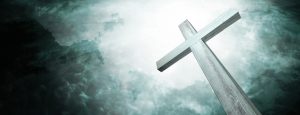
Sight is one of our most valuable senses, but there is a blindness that is worse than physical blindness: spiritual blindness. Physical blindness, even though it could affect one’s entire lifetime, is not as bad as spiritual blindness that can lead to an eternity separated from God.
This week we remember Palm Sunday, the day Jesus rode into Jerusalem on a donkey with crowds cheering him on—the same crowd that days later would shout “Crucify him!” Before this day, Jesus had been preparing his disciples for his crucifixion. In the Gospel of Luke, he tells them three times what is going to happen in Jerusalem, but they do not understand what he is talking about. To them, Jesus was the invincible Messiah heading to Jerusalem to establish his earthly throne. They did not see the full picture and the amazing purpose of God for Jesus coming to the earth.
Revealing Spiritual Blindness
Jesus takes his disciples aside and explains that everything written through the prophets about him will be accomplished. The disciples knew the Scriptures; they had been taught that the Messiah would come and re-establish Israel as a mighty nation. But they did not dwell on passages like Isaiah 53, the prophecy about the suffering servant who would be rejected by man and even punished by God. That prophecy didn’t fit their understanding or paradigm of how God would fulfill the Messianic prophecies. In the Gospel of Matthew, Jesus clearly predicted his death would be by crucifixion (see Matthew 26:1-2). This type of death was reserved for the worst criminals. According to the law of Moses, those who were crucified were under a curse by God (see Deuteronomy 21:22-23 and Galatians 3:13).
No other person in all of history was less deserving of such suffering than Jesus. Not only did Jesus suffer an excruciating death, he also took on the full punishment of the wrath of God for our sins. That was the real suffering of the cross. It was a suffering by design; it was the plan of God all along (see Isaiah 53:10).
In Luke 18:34 we read, “The disciples did not understand any of this. Its meaning was hidden from them, and they did not know what he was talking about.” Luke emphasizes the lack of understanding by repeating it three times. The disciples were blind; they did not see with spiritual eyes. They were looking for the establishment of an earthly kingdom, but the truth was hidden from them.
Healing Physical Blindness
It is no coincidence that the very next miracle recorded in the Gospel of Luke is that of Jesus healing a blind man. The juxtaposition of the disciples’ spiritual blindness with the man’s physical blindness reinforces their lack of understanding. Jesus performed many miracles that were not recorded for us in the Bible, but this one was significant. Its positioning in the Gospel is key.
This blind man is so loud in his desperation that he incites a rebuke from the crowd, but he keeps on yelling with all his might. He is desperate because he grasps his own blindness and has faith that Jesus can open his sight.
Notice the contrast: here is a blind man who is desperate to be able to see, and here are disciples who are unaware of their own spiritual blindness. The most significant event in human history was lost on those participating in it—even those closest to Jesus—because they were expecting something else. They didn’t see clearly.
The blind man knew who Jesus was. He recognized that Jesus was the Messiah. He praised God and followed Jesus.
Saving from Spiritual Blindness
Those who are the most blind respond the most readily to the Gospel. Those who realize the depths of their sin are the most appreciative of their salvation.
Remember the words of Jesus to the Laodicean church in Revelation 3:17; “For you say, ‘I’m rich; I have become wealthy and need nothing,’ and you don’t realize that you are wretched, pitiful, poor, blind, and naked.” This letter to the Laodicean church was addressed not to those who didn’t believe in Jesus but to the early church who did. Yet they were blind because they did not completely grasp the truth of the Gospel.
Jesus was with God at the beginning of creation; Jesus spoke the earth into existence. When he created that hill called Calvary and formed the tree that became his cross, he knew that he would ultimately suffer and die on it. He created the instruments of his own suffering because of his love for you.
As we go into this Holy Week, we will see the cross all around us perhaps more than any other week of the year. Let that remind us of the foundation of our faith. Without the cross, we have no savior. Without the resurrection we have no hope. And without the Spirit we have no sight. The truth about Jesus was hidden from those around him when he walked the earth. In the same way, the truths of the Word of God are not self-evident; they are revealed to us by the Holy Spirit. When God starts speaking to you through His Word, it comes alive. It makes you wake up in the morning looking for the Bible.
As you read about the crucifixion account in the Gospels this week, spend time praying and asking the Holy Spirit to give you insight and understanding. Make it personal, realizing that Jesus was thinking about you as he walked the road to Jerusalem.
My prayer for all of us is that if there is an area of spiritual blindness, the Holy Spirit would give us eyes to see and ears to hear. As Jesus said to his disciples on another occasion in Matthew 13:16; “But blessed are your eyes because they see, and your ears because they hear.”




